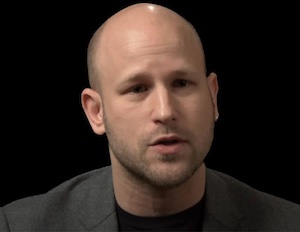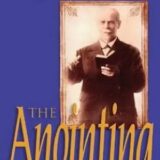Harvard University has appointed an atheist as the head of its chaplaincy.
Greg Epstein, 44, who was raised Jewish, has already worked as a Humanist chaplain at the college. He has been described as a “godfather to the humanist movement”, a secular, values-based philosophy that focuses on people’s relationships with each other, instead of with God.
As chief chaplain, Epstein will coordinate activities of over 40 chaplains from more than 20 different religious, spiritual and ethical traditions from the Christian, Jewish, Islamic, Hindu and Sikh faith.
He also represents the fast-growing number of Americans who do not associate themselves with a religious group, sometimes referred to as nones, as in no affiliation, a group that now rivals white evangelicals and Catholics in size.
He was voted for unanimously by his other chaplain colleagues.
Mr Epstein, is the author of ‘Good Without God: What a Billion Nonreligious People Do Believe’, and wants to be there for those on campus who do not believe in God but still want to make good choices.
“It’s a milestone of inclusion,” said Epstein, who started work at Harvard in 2005. “It marks that people who have serious disagreements around important things can also have serious cooperation and real love and mutual respect that is bigger than their difference.”
He told the New York Times, “There is a rising group of people who no longer identify with any religious tradition but still experience a real need for conversation and support around what it means to be a good human and live an ethical life.”
“We don’t look to a god for answers,” he added. “We are each other’s answers.”
“We have a lot that divides us theologically but we have a tremendous amount in common when it comes to our shared desires … to support the human beings in our community as they try to live lives of meaning and purpose in a world that can sometimes threaten to rob us of those senses, regardless of our beliefs,” he added.
Epstein’s other priority is ensuring that he and his colleagues serve the university’s most marginalised communities.
“I want to be a positive force … against the vision of Harvard that some people have as an institution of privilege and prestige over justice and equity … We want them to feel, regardless of their beliefs … that Harvard is equal for them and that the better world we are all trying to build at Harvard involves justice and equity for people like them,” he said.
Although the appointment of an atheist as president of the university’s chaplains may seem unorthodox, many Harvard students attest to the influence that Epstein has had on them.
“Greg’s leadership isn’t about theology,” Charlotte Nickerson, a 20-year-old electrical engineering student, told the New York Times. “It’s about cooperation between people of different faiths and bringing together people who wouldn’t normally consider themselves religious,” she added.
Adelle Goldenberg, a 22-year-old student who grew up in Brooklyn’s Hasidic community and longed to find people struggling with issues beyond academic achievement, has found solace in Epstein’s mentorship, she said.
“He showed me that it’s possible to find community outside a traditional religious context, that you can have the value-add religion has provided for centuries, which is that it’s there when things seem chaotic,” she said.
As many young people increasingly identify as spiritual but not religiously affiliated, Epstein promotes human connection.
Evangelist Franklin Graham wrote on Twitter: “That won’t work. God has the answers every human heart is looking for. I’m thankful He sent His Son, Jesus Christ, to save us from our sins. That’s the hope chaplains should be sharing.”
Mr Epstein’s biography on Harvard’s chaplaincy website reads that his book “continues to be influential years after its initial publication helped popularise the notion that the rapidly growing population of secular people can live lives of deep purpose, compassion, and connection.”
He responded to his appointment by saying: “thank you especially to my amazing colleagues. This story is really about them and about the importance of our common work, which is more important than ever in these times…thank you interfaith groups who bravely set a precedent of warm partnership with humanists like me.”
The Puritan colonists who settled in New England in the 1630s wanted to ensure that the clergymen would be literate. Their answer was Harvard University, established to educate the ministry and adopted the motto “Truth for Christ and the Church.” It was named Pastor John Harvard; it would be more than 70 years before the school had a president who was not a clergyman.













